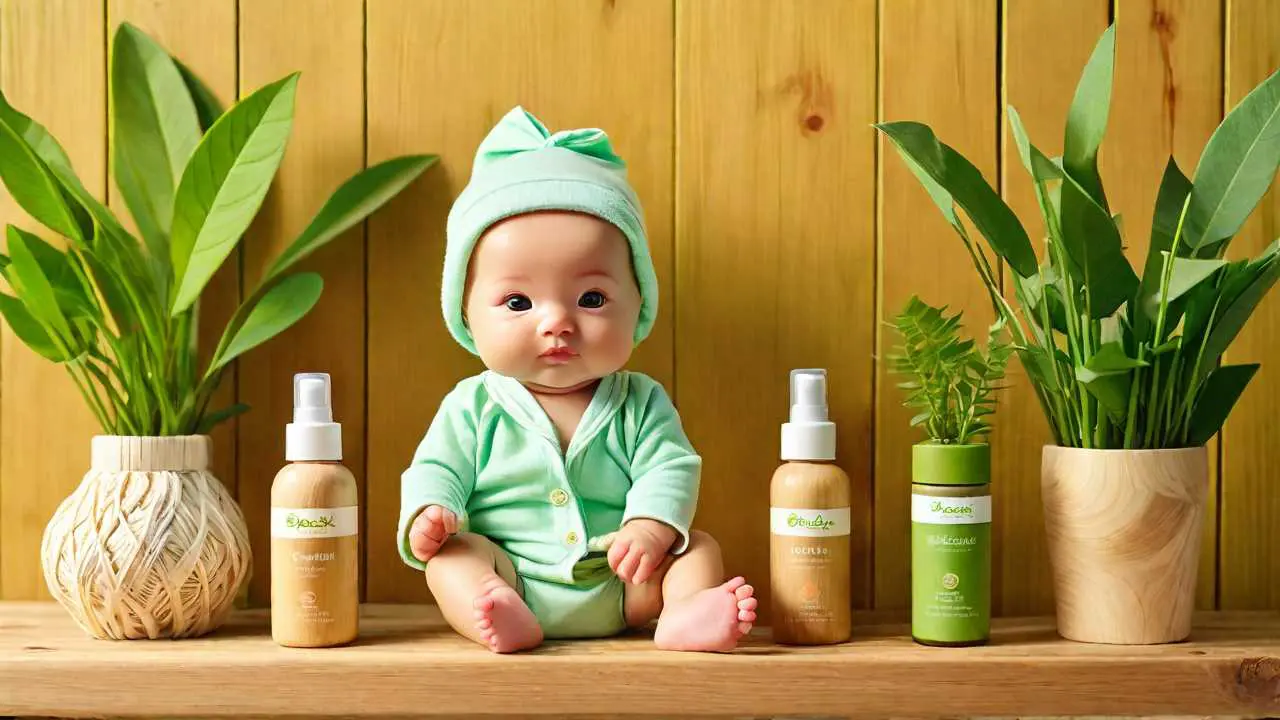Health
How Can I Ensure the Baby Products I Use Are Truly Eco-Friendly?

When it comes to selecting eco-friendly baby products, the journey to making informed choices can often feel like finding your way through a maze. With the multitude of options available claiming to be sustainable, it’s important to tread cautiously. From deciphering eco-labels to scrutinizing ingredients, the path to ensuring your baby’s products align with your environmental values can be both enlightening and, at times, perplexing. But fear not, as armed with the right knowledge and a discerning eye, you can pave the way towards a greener, healthier future for your little one.
Understanding Eco-Labels
To navigate the world of eco-friendly baby products effectively, understanding eco-labels is essential for making informed choices. Eco-labels are symbols or logos on products that indicate environmental certifications or claims. These labels help you identify products that meet specific environmental standards, such as being made from sustainable materials or being produced using eco-friendly practices.
By paying attention to eco-labels, you can guarantee that the baby products you choose align with your values and environmental goals.
Common eco-labels to look out for include the USDA Organic label, which certifies that the product is made with organic ingredients, and the Forest Stewardship Council (FSC) label, which indicates that the product comes from responsibly managed forests. Additionally, labels such as Fair Trade Certified and Energy Star can also guide you towards more sustainable choices.
Understanding these eco-labels empowers you to select baby products that not only meet your needs but also contribute to a healthier planet for future generations.
Choosing Natural Materials
Choosing baby products made from natural materials improves sustainability and reduces environmental impact. Natural materials like organic cotton, bamboo, and wood are biodegradable and renewable, making them excellent choices for eco-conscious parents.
Organic cotton, for example, is grown without synthetic pesticides or fertilizers, reducing harm to the environment and promoting healthier soil. Bamboo is a fast-growing plant that requires minimal water and no pesticides to thrive, making it a sustainable choice for baby products like clothing and bedding. Wood, especially when sourced from responsibly managed forests, is durable and can be easily repurposed or recycled at the end of its life cycle.
When selecting baby products made from natural materials, look for certifications like Global Organic Textile Standard (GOTS) for textiles or Forest Stewardship Council (FSC) for wood products. These certifications confirm that the materials used are sustainably sourced and meet specific environmental and social criteria.
Avoiding Harmful Chemicals
Selecting baby products free from harmful chemicals is crucial for guaranteeing the safety and well-being of your little one. Many conventional baby products contain chemicals such as parabens, phthalates, formaldehyde, and synthetic fragrances, which have been linked to various health issues in children.
By choosing products labeled as ‘paraben-free,’ ‘phthalate-free,’ or ‘fragrance-free,’ you can significantly decrease your baby’s exposure to these harmful substances.
To further avoid chemicals, opt for organic products certified by trusted organizations like the Global Organic Textile Standard (GOTS) or the USDA Organic seal. These certifications ensure that the products meet strict criteria regarding the materials used and the manufacturing processes involved.
When reviewing product labels, watch out for ingredients like triclosan, sodium lauryl sulfate (SLS), and polyethylene glycols (PEGs), as these can also pose risks to your baby’s health.
Researching Brands and Certifications
When considering eco-friendly baby products, conducting research on reputable brands and certifications is essential to guarantee the highest standards of safety and sustainability. By researching brands, you gain insight into their manufacturing processes, transparency, and commitment to eco-friendly practices. Look for brands that prioritize using organic, non-toxic materials and ethical production methods.
Certifications play an important role in verifying the eco-friendliness of baby products. Seek out certifications like Global Organic Textile Standard (GOTS), OEKO-TEX Standard 100, Forest Stewardship Council (FSC), and USDA Organic. These certifications ensure that the products meet specific environmental and social criteria, providing you with confidence in their sustainability claims.
Furthermore, researching brands and certifications allows you to align your values with the products you choose for your baby. By supporting brands that prioritize eco-friendliness and hold relevant certifications, you contribute to a more sustainable future for your child and the planet.
Frequently Asked Questions
How Can I Recycle or Dispose of Eco-Friendly Baby Products?
When considering recycling or disposing of eco-friendly baby products, you can refer to local recycling guidelines or look into drop-off locations. Many items like glass baby bottles or cloth diapers can be repurposed or recycled to reduce waste.
Are There Any Eco-Friendly Baby Products for Sensitive Skin?
In your search for eco-friendly baby products for sensitive skin, uncover labels with gentle ingredients like a treasure map guiding you to safe havens. Seek certifications like GOTS or Oeko-Tex for added assurance.
Can I Trust Small, Local Brands to Be Eco-Friendly?
You can trust small, local brands to be eco-friendly by researching their certifications, ingredients, and sourcing practices. Look for transparency in their production methods and eco-conscious initiatives to guarantee you’re supporting sustainable choices.
Are There Eco-Friendly Options for Baby Products on a Budget?
Looking for eco-friendly baby products on a budget? You’ll be pleasantly surprised! Many affordable brands offer sustainable options without breaking the bank. By comparing prices and ingredients, you can find the perfect balance for your little one.
How Can I Make My Own Eco-Friendly Baby Products at Home?
To make your own eco-friendly baby products at home, research recipes using natural ingredients like coconut oil, shea butter, and essential oils. Follow safety guidelines, prioritize organic materials, and consider reusable packaging for a sustainable approach.

Hello there! I’m Jeremy Ramirez, your go-to guy for all things content marketing and social media at NewsScroller. Currently residing in the vibrant city of Omaha, NE, I’m living my dream of combining my passion for journalism with the dynamic world of digital media.
I’m a proud graduate of the University of Nebraska, where I honed my skills and earned a degree in journalism. My college days were filled with endless learning, coffee-fueled study sessions, and the excitement of discovering the power of storytelling.
Post-graduation, I found my calling at NewsScroller, where I currently lead a team of creative minds in shaping compelling content strategies. Every day is a new adventure here – crafting stories, analyzing trends, and engaging with our vibrant online community.
When I’m not immersed in the digital world, you’ll find me cherishing moments with my amazing wife and our two energetic boys. Our family is completed by Dagwood, our adorable Pug, who always brings smiles to our faces.
Traveling is my escape and inspiration. I love exploring new cultures, tasting local cuisines, and capturing memories through my lens. As a speaker at social media events, I enjoy sharing insights and learning from fellow enthusiasts.
Curious about content marketing strategies or the latest social media trends? Or maybe you want to exchange travel stories? Feel free to reach out. I’m always up for a chat and eager to connect with like-minded individuals. Let’s navigate the exciting world of digital media together!
Want to know more or say hi? Drop me a message anytime!

